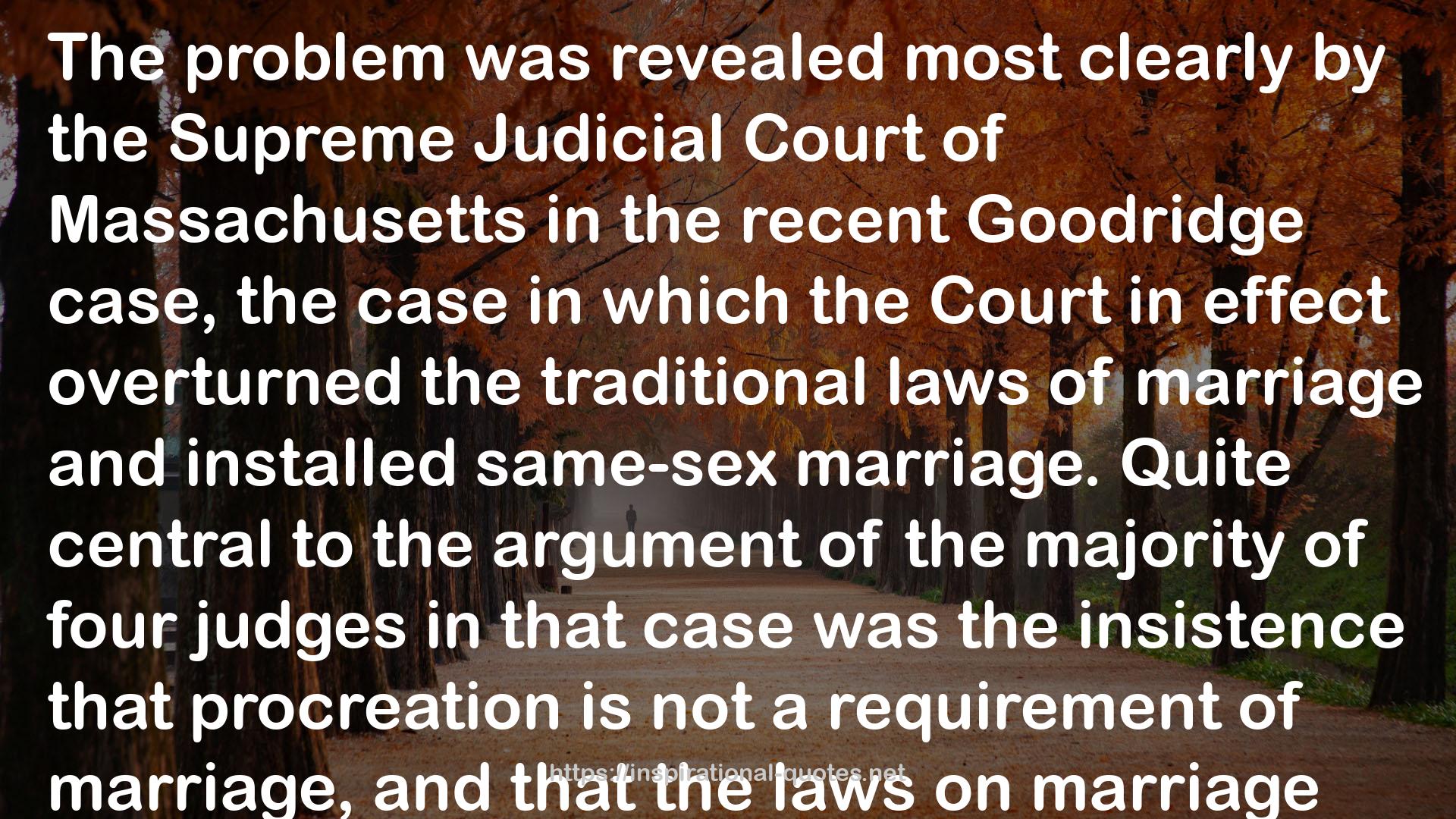" The problem was revealed most clearly by the Supreme Judicial Court of Massachusetts in the recent Goodridge case, the case in which the Court in effect overturned the traditional laws of marriage and installed same-sex marriage. Quite central to the argument of the majority of four judges in that case was the insistence that procreation is not a requirement of marriage, and that the laws on marriage “do not privilege procreative heterosexual intercourse between married people above every other form of adult intimacy.” But the Court opened itself here to more than it realized, for by the same reasoning one may say that marriage should be open to uncles and nieces, father and daughters, who happen to be sterile and intimate. Or to the man willing to have a vasectomy in order to marry his mother? And yet, more than that: if people of the same sex may marry, why would the arrangement not be open to a father and son? We have seen cases of incest, as bizarre as they may seem, just as we’ve seen things as odd as the fellow in Maine who sought a license to marry his dog, or the fellow in Denver a few years ago who sought to marry his horse. The impulse is there, and once again it matters not at all in principle that these are rare cases. Until recently it has been rare to see people of the same sex wishing to marry. The fact that there may only be a handful of cases does not relieve us of the need to explain the grounds of principle on which we would deny these claims of marriage—once we move out of that framework of marriage as a union between a man and a woman. "
― Jean Bethke Elshtain , The Meaning Of Marriage: Family, State, Market, And Morals
